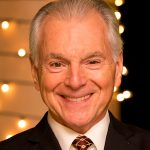By Jim Cathcart
As needs emerge, so do opportunities. Will Rogers once said, “There is no shortage of work. There are fences to mend, crops to tend, and more. You may not get paid for doing it. But you won’t get paid for not doing it either.”
He was commenting on the situation in The Great Depression, during which so many people were out of work. But even when most jobs are filled and most work is getting done, there are still abundant opportunities. As life goes on so do challenges, problems, and dilemmas – and the need for practical solutions.
How to encourage businesses
To encourage people to solve problems, make the problems obvious, allow people to experiment and to take reasonable risks, and celebrate those who step up to create solutions! Praise entrepreneurs publicly. Make a positive example of them. Others will follow.
Last year I was the closing keynote speaker at the Austin Small Business Festival. This city-wide event attracted hundreds of people to multiple venues and received the support of the mayor and the governor of Texas! All over town there were seminars, demonstrations, tours, performances, and speeches that were simulcast to a huge audience. The entire town became aware of the presence and sensitive to the needs of entrepreneurs. They also encouraged others to experiment with their own products and services.
Austin is perfect for this because it boldly encourages another type of entrepreneur: musicians. Austin has declared itself the “Live Music Capital of the World”! Being a professional musician myself I really value the atmosphere of experimentation and involvement they have created. Similar festivals are happening worldwide. (My friend and colleague, Matthew Pollard, is the organizer of the Austin events.)
News flash: Big businesses start out as…yes, small businesses. Some guy or gal with a good idea starts seeking support and goes to work solving a problem. One great benefit of big businesses is that they raise the standards of performance. The McDonald brothers had a nice hamburger stand with Multi-Mix milk shake machines but – when Ray Kroc worked out the systems to multiply the stores and retain the quality, friendliness, and cleanliness – an empire was created and hundreds of millions of us had easy access to foods we wanted. J. Paul Getty started in the oil fields. Bill Gates was experimenting with technology during the off hours at his school. Steve Jobs and Steve Wozniak were working on a shoestring budget in Job’s garage. Uber was just some people looking to make some extra money driving their own cars. Netflix was simply an effort to do a better job of what Blockbuster used to do – rent movies.
What does this mean to you and me? “Find a need and fill it.” That success advice has been around for generations and nobody has provided a better answer. As long as people exist there will be opportunities to help them.
You may have a skill or interest for which others are willing to pay. In fact, you probably do! The more you do work that you enjoy, the better you will do it – and the more our entire society will advance. Society is nothing more than a lot of individuals connected in ways that help them find the solutions they need.
Where does sales fit into all of this?
Selling is leading people to take action to fill their needs. It is an act of friendship: helping people get what they want or need and earning a profit by doing it.
Entrepreneurs must become effective salespeople even if they don’t choose to. Nothing substantial happens until people start to cooperate with others to make things better. Sales professionals are the folks who activate that impulse.
Great guitar makers don’t affect anyone until somebody buys one of their guitars and uses it to produce beautiful music. Selling is helping and it is essential to our society’s well-being. Think of this: Without life insurance many people would be wiped out by the death of their breadwinner. But, without insurance salespeople, most folks would not proactively seek insurance. Salespeople stimulate the need, clarify the solution, paint pictures of the benefits, and guide others to commit to a purchase. We need salespeople.
What can you do to help somebody today?
 Jim Cathcart, CSP, CPAE, is one of the world’s most award-winning professional speakers and the author of 18 books. He’s the sales consultant and motivator who popularized the concept and practice of “Relationship Selling.” Jim is a regular contributor to Selling Power and a certified Mindset Trainer. Contact Jim at Cathcart.com.
Jim Cathcart, CSP, CPAE, is one of the world’s most award-winning professional speakers and the author of 18 books. He’s the sales consultant and motivator who popularized the concept and practice of “Relationship Selling.” Jim is a regular contributor to Selling Power and a certified Mindset Trainer. Contact Jim at Cathcart.com.

